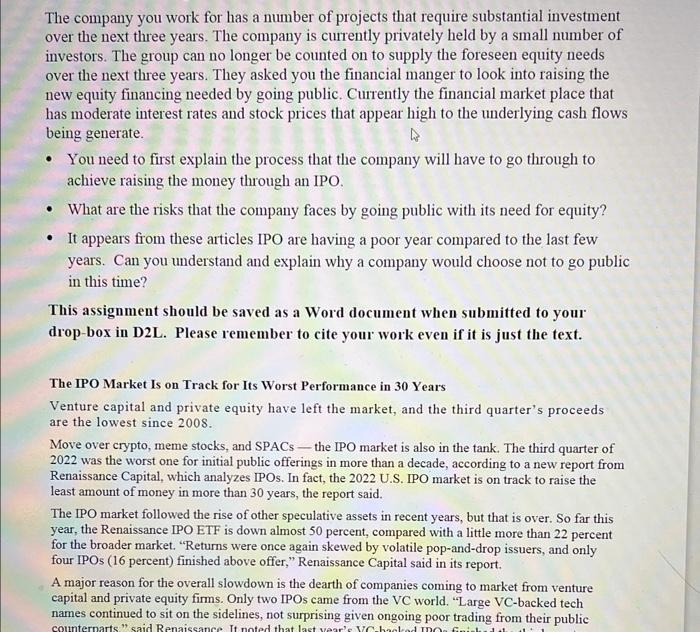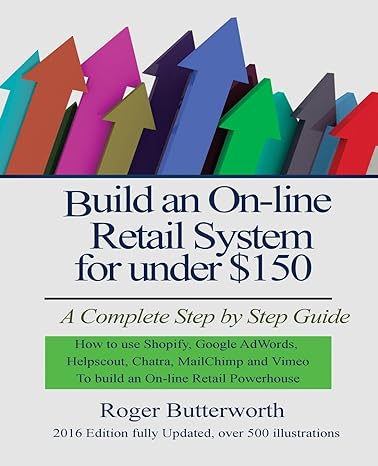The company you work for has a number of projects that require substantial investment over the next three years. The company is currently privately held by a small number of investors. The group can no longer be counted on to supply the foreseen equity needs over the next three years. They asked you the financial manger to look into raising the new equity financing needed by going public. Currently the financial market place that has moderate interest rates and stock prices that appear high to the underlying cash flows being generate. - You need to first explain the process that the company will have to go through to achieve raising the money through an IPO. - What are the risks that the company faces by going public with its need for equity? - It appears from these articles IPO are having a poor year compared to the last few years. Can you understand and explain why a company would choose not to go public in this time? This assignment should be saved as a Word document when submitted to your drop-box in D2L. Please remember to cite your work even if it is just the text. The IPO Market Is on Track for Its Worst Performance in 30 Years Venture capital and private equity have left the market, and the third quarter's proceeds are the lowest since 2008 . Move over crypto, meme stocks, and SPACs - the IPO market is also in the tank. The third quarter of 2022 was the worst one for initial public offerings in more than a decade, according to a new report from Renaissance Capital, which analyzes IPOs. In fact, the 2022 U.S. IPO market is on track to raise the least amount of money in more than 30 years, the report said. The IPO market followed the rise of other speculative assets in recent years, but that is over. So far this year, the Renaissance IPO ETF is down almost 50 percent, compared with a little more than 22 percent for the broader market. "Returns were once again skewed by volatile pop-and-drop issuers, and only four IPOs (16 percent) finished above offer," Renaissance Capital said in its report. A major reason for the overall slowdown is the dearth of companies coming to market from venture capital and private equity firms. Only two IPOs came from the VC world. "Large VC-backed tech names continued to sit on the sidelines, not surprising given ongoing poor trading from their public







